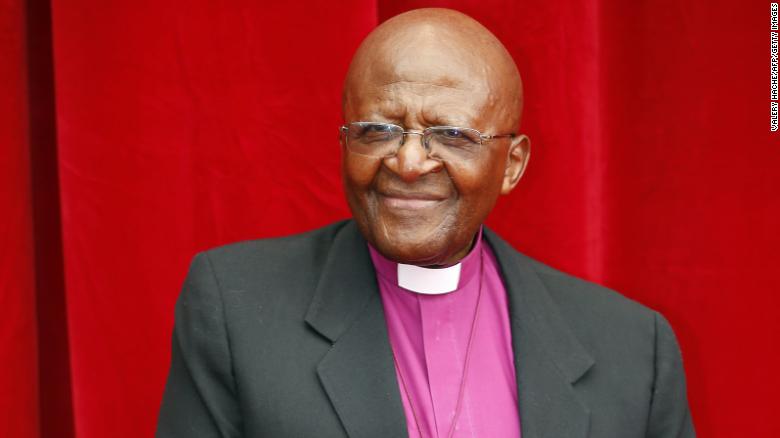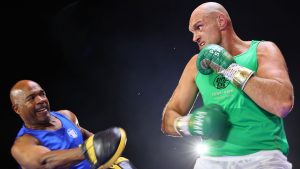Archbishop Desmond Tutu dies at 90

In a statement confirming his death on Sunday, South African President Cyril Ramaphosa expressed his condolences to Tutu’s family and friends, calling him “a patriot without equal.” ”A man of extraordinary intellect, integrity and invincibility against the forces of apartheid, he was also tender and vulnerable in his compassion for those who had suffered oppression, injustice and violence under apartheid, and oppressed and downtrodden people around the world,” Ramaphosa said.Tutu had been in After reeling off the prejudices and inequalities of the apartheid system, Tutu summed up his thoughts. “In short,” he said, “this land, richly endowed in so many ways, is sadly lacking in justice.” There were more injustices to come: assassinations, allegations of hit squads, bombings. In 1988, two years after being named Archbishop of Cape Town, becoming the first Black man to head the Anglican Church in South Africa, Tutu was arrested while taking an anti-apartheid petition to South Africa’s parliament. But the tide was turning. The next year, Tutu led a 20,000-person march in Cape Town. Also in 1989, a new president, F.W. de Klerk, started easing apartheid laws. Finally, on February 11, 1990, Mandela was released from prison after 27 years. De Klerk died last month. Four years later, in 1994, Mandela would be elected president. Tutu compared being allowed to vote for the first time to “falling in love” and said — behind the birth of his first child — introducing Mandela as the country’s new president was the greatest moment of his life. “I actually said to God, I don’t mind if I die now,” he told CNN. Controversial stancesTutu’s work was not done, however. In 1995 Mandela appointed him chair of the Truth and Reconciliation Commission to address the human rights violations of the apartheid years. Tutu broke down at the TRC’s first hearing in 1996. The TRC gave its report to the government in 1998. Tutu established the Desmond Tutu Peace Trust the same year. He returned to teaching, becoming a visiting professor at Emory University in Atlanta for two years and later lecturing at the Episcopal Divinity School in Cambridge, Massachusetts. He published a handful of books, including “No Future Without Forgiveness” (1999), “God Is Not a Christian” (2011), and a children’s book, “Desmond and the Very Mean Word” (2012). He retired from public service in 2010 but remained unafraid to take controversial positions. He called for a boycott of Israel in 2014 and said that former US President George W. Bush and former UK Prime Minister Tony Blair should be “made to answer” at the International Criminal Court for their actions around the Iraq war.But he was also distinguished for his sense of humor, embodied in a distinctive, giggle-like laugh. While visiting “The Daily Show” in 2004, he broke up at Jon Stewart’s jokes. And he poked fun at “On Being” interviewer Krista Tippett in 2014, chiding her for not offering him the dried mangos — his favorite — she’d brought along. Despite all the praise and fame, however, he told CNN he didn’t feel like a “great man.” “What is a great man?” he said. “I just know that I’ve had incredible, incredible opportunities. … When you stand out in a crowd, it is always only because you are being carried on the shoulders of others.” For all of his good works, he added, there may have been another reason he had so many followers. “They took me only because I have this large nose,” he said. “And I have this easy name, Tutu.” Tutu is survived by his wife of more than 60 years, Nomalizo Leah Tutu, with whom he had four children, Trevor, Theresa, Naomi and Mpho.This story has been updated with additional reaction. CNN’s Robyn Curnow contributed to this report.







